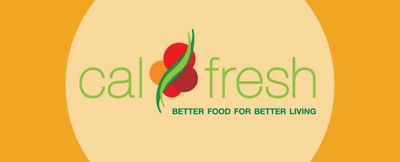Campus News
Addressing student hunger boosts academic success, too
A new study suggests that enrolling students in CalFresh—the state’s food assistance program for low-income residents—not only addresses student hunger but also boosts the retention rate of participating undergraduates.

Hunger on college campuses is a significant problem, with some estimates indicating that more than 40% of UC students face some degree of food insecurity. A new study suggests that enrolling students in CalFresh—the state’s food assistance program for low-income residents—not only addresses student hunger but also boosts the retention rate of participating undergraduates.
Researchers found that UC Santa Cruz first- and second-year undergraduates who enroll in CalFresh as part of Slug Support, the campus’s basic-needs program, were more likely to return to campus the following fall than their counterparts who didn’t enroll. The study was conducted by Rebecca London, an assistant professor of sociology, and Brandon Balzer Carr, a doctoral student in psychology.
The first-year retention rate for CalFresh enrollees hit 94%, only slightly higher than the overall retention rate of 92%—but substantially higher than the 87% rate of students who participate in Slug Support without enrolling in CalFresh. The pattern holds for second-year students, as well, according to London.
This new evidence that improving food security also improves student academic outcomes is welcome and timely news, said London.
“Governor Newsom’s proposed budget includes $18.5 million to address hunger and housing in the UC system,” she said. “Now we know that type of support also helps keep students on the path to completing their degrees.”
Given the results, London hopes policymakers and university leaders will consider making it easier for students to enroll in CalFresh, boosting student awareness of their eligibility, and adopting other measures to increase participation. About one-third of UCSC students qualify for the state’s Educational Opportunity Program (EOP), which makes them eligible for CalFresh.
London and Balzer Carr conducted the research through a partnership with Slug Support and the Student Success Equity Research Center in the Division of Student Success. London and Carr coauthored a post about their findings on the Public Policy Institute of California’s blog; London is an adjunct fellow at the institute.
—–
The Slug Support Program promotes early intervention, providing support to students in need before problems escalate into a crisis; it operates a food pantry, provides referrals to a range of campus and community resources, and offers financial support for food, emergency housing, and other essential needs. The Basic Needs website is a clearinghouse of information to help support students’ basic needs and wellness, as well as to provide crisis support; information about food, housing health and wellness, and financial security is available. Last November, the Cowell Coffee Shop was transformed into a nontransactional food store and café to meet the needs of low-income students by offering free coffee, meals, pastries